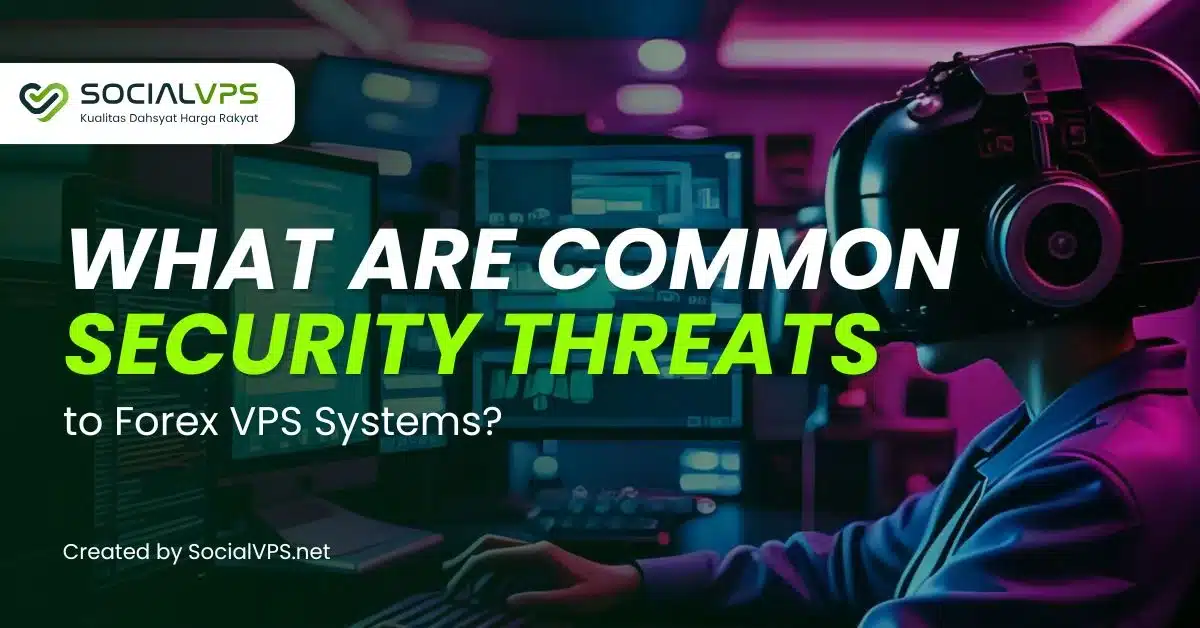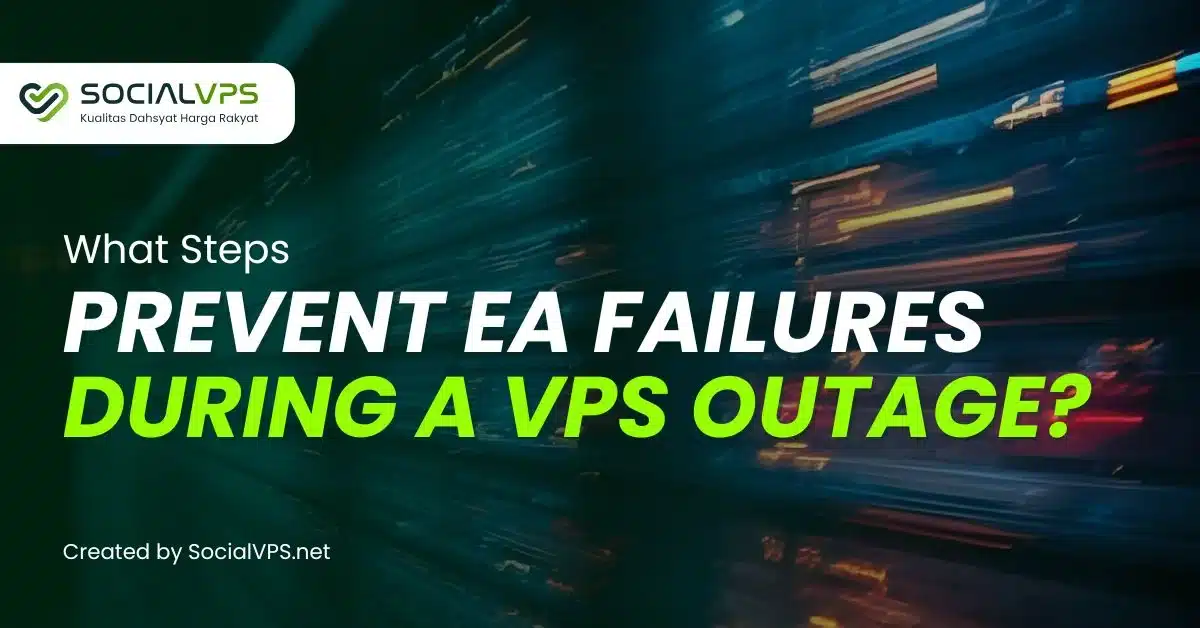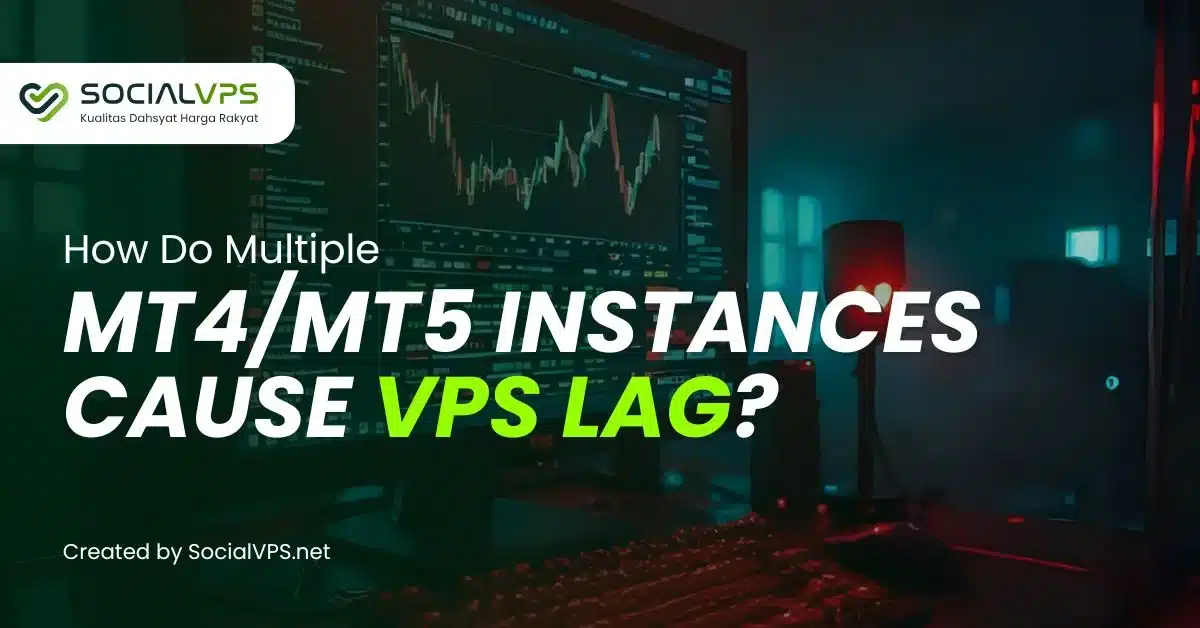SocialVPS.net — For forex traders, especially those relying on Expert Advisors (EAs) and automated trading systems, Virtual Private Servers (VPS) have become essential tools. However, like any online system, Forex VPS environments face common security threats that can disrupt trades, compromise sensitive data, and even cause financial losses.
Understanding these risks is the first step toward protecting your trading performance and capital.
Why Is Security Important for Forex VPS?

A Forex VPS operates 24/7, ensuring uninterrupted trading. But this constant uptime makes it an ideal target for cybercriminals and malicious software. If your VPS is compromised, hackers can gain unauthorized access to your trading platform, manipulate orders, or even steal your credentials.
As the forex market operates in real-time, even a few seconds of vulnerability can be costly. Hence, securing your VPS is not an option — it’s a necessity.
Malware and Viruses
One of the most common security threats to any system — including Forex VPS — is malware. This includes viruses, trojans, ransomware, and spyware.
Malicious programs can be injected into your VPS through:
- Downloading unknown files,
- Opening suspicious email attachments,
- Visiting unsafe websites.
These threats can corrupt your trading bots, alter your trades, or silently monitor your activity.
How to Prevent It:
- Use reliable antivirus software.
- Regularly scan your VPS.
- Avoid installing unnecessary programs.
Brute Force Attacks
Another common security vulnerability is brute force attacks, where attackers try various combinations to guess your VPS login credentials.
Since VPS servers are always online, they become easy targets for automated scripts that continuously attempt to log in.
Prevention Tips:
- Always use strong and unique passwords.
- Change your default VPS port.
- Enable two-factor authentication (2FA) when available.
Moving forward, brute force attacks can be significantly reduced with basic security hygiene.
Unpatched Software Vulnerabilities
Running outdated software or operating systems on your VPS creates an open door for cybercriminals. These known vulnerabilities are often exploited by malware and botnets.
Traders often neglect software updates to avoid disrupting trades, but this delay increases exposure to risks.
What You Can Do:
- Regularly update your OS, trading platforms, and plugins.
- Automate updates during off-market hours if needed.
- Use a VPS provider that handles proactive maintenance.
from $8.3 to $5.7/billed annually

DDoS (Distributed Denial of Service) Attacks
A DDoS attack involves flooding your VPS with excessive traffic, causing it to crash or become unresponsive. Although more common for websites, Forex VPS systems can also be affected, especially those used for copy trading or social trading platforms.
Risk Mitigation:
- Choose a VPS provider with DDoS protection.
- Avoid exposing your VPS IP to public forums or unknown users.
Weak Remote Desktop Protocol (RDP) Settings
RDP is how traders typically access their VPS. If left unsecured, attackers can intercept or hijack your session.
Poor RDP configurations, such as using default ports or allowing multiple simultaneous sessions, can invite intrusions.
Securing RDP Access:
- Disable clipboard and printer redirection.
- Use encrypted connections.
- Restrict access to specific IP addresses.
As we shift into more advanced trading setups, strengthening RDP security should be your top priority.
Protect Your Trading Environment with the Right VPS
The common security threats to Forex VPS systems are real, but they are also preventable. By being aware of these risks and choosing the right VPS provider, traders can focus on what matters most: profitable, uninterrupted trading.
At SocialVPS, we prioritize security, speed, and ultra-low latency tailored specifically for forex traders. Whether you’re auto trading using MetaTrader or relying on high-frequency strategies, your trading deserves the best protection available.
FAQs
What is the most common security threat to Forex VPS?
The most frequent threat is malware infection, which can enter your VPS through unsecured downloads, phishing, or outdated software.
Can someone hack into my Forex VPS?
Yes, if your VPS uses weak passwords or outdated RDP settings, hackers can gain access. That’s why security best practices are crucial.
How do I secure my VPS for forex trading?
Use strong passwords, enable firewalls, install antivirus software, update regularly, and choose a VPS provider with built-in DDoS and RDP protection.
Is it safe to use a free VPS for forex trading?
Most free VPS services lack dedicated security measures. For serious trading, always opt for reputable providers like SocialVPS with forex-specific protection.













